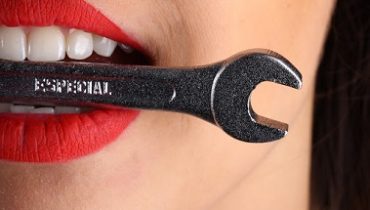
How Common Is Teeth Grinding?
Teeth grinding, also called bruxism, may or may not be a cause for concern. This grinding can be triggered by normal life events that cause an increase in stress and anxiety. When teeth grinding becomes a habit, however, you will need to see a dentist before the damage becomes serious.You may be wondering, how common is teeth grinding? Well, according to the National Sleep Foundation, bruxism occurs in roughly 8 percent of adults, and as many as a third of parents report that their children grind their teeth during their sleep.
Why Do People Grind Their Teeth at Night?
Identifying the underlying cause of bruxism is difficult because many people experience teeth grinding due to various factors. Some of the possible causes of this clenching or grinding include the following:
- Anxiety
- Stress
- Alcohol consumption
- Smoking
- Caffeine
- Sleep apnea
- Snoring
- Fatigue
Dentists also suspect that an abnormal bite or missing or crooked teeth may cause this nocturnal teeth grinding.
Studies have shown that teeth grinding can also be a symptom of a vitamin deficiency in Calcium or Magnesium. Eating a nutritious diet and taking vitamin supplements as needed may be able to decrease your risks for teeth grinding.
Teeth grinding in children is typically nothing to worry about, especially since it’s fairly common. According to KidsHealth, 2 out of 3 children experience bruxism symptoms and most of these children grow out of it. However, it’s still advisable that parents keep an eye on the condition and continue to visit the dentist regularly.
Teeth Grinding Symptoms
Teeth grinding occurs when one is asleep, making it difficult for a person to identify whether they are grinding their teeth. In this case, it’s best to see a dentist who can examine your teeth for signs of excessive wear or jaw tenderness.
Sometimes bruxism can be recognized when a loved one hears the teeth grinding sound. However, because the sound is faint, it can go unnoticed.
People with bruxism typically experience other symptoms due to grinding their teeth. If you are waking up in the morning with any of the following symptoms, make sure to mention it to your dentist:
- Headaches
- Earaches
- Jaw pain
- Jaw joint disorders
- Damaged teeth
Is Teeth Grinding Harmful?
Teeth grinding is not an immediate cause for concern, unless it becomes habitual. Over the course of time, teeth grinding can loosen and fracture teeth. If the condition becomes chronic, you may require crowns, bridges, implants, partial or complete dentures, or root canal treatment.
In addition to the increased risk of tooth loss, grinding your teeth can damage your jaws and influence temporomandibular joint disorders.
How Do I Stop Grinding My Teeth?
If you have become aware that you are clenching or grinding your teeth during your sleep, it is up to you to try as many teeth grinding treatments as you can. The following is a list of some easy strategies to implement:
- Wear a custom-fitted night guard: These mouth guards should be worn while you sleep to protect your teeth.
- Exercise on a daily basis: Studies have shown that exercising can help reduce your stress levels.
- Take a warm shower: A warm shower before bed can help relax your entire body, including your jaw muscles.
- Meditate: Meditation before bed can help reduce anxiety and relieve stress.
Avoid alcohol, smoking, and caffeine: Engaging in these three activities may cause grinding to worsen.
Whether you decide to try a home remedy for teeth grinding or get a custom-fitted night guard, the reduction of this habit will also improve your quality of sleep. Find a dentist today to ensure your teeth are as healthy as your smile!
